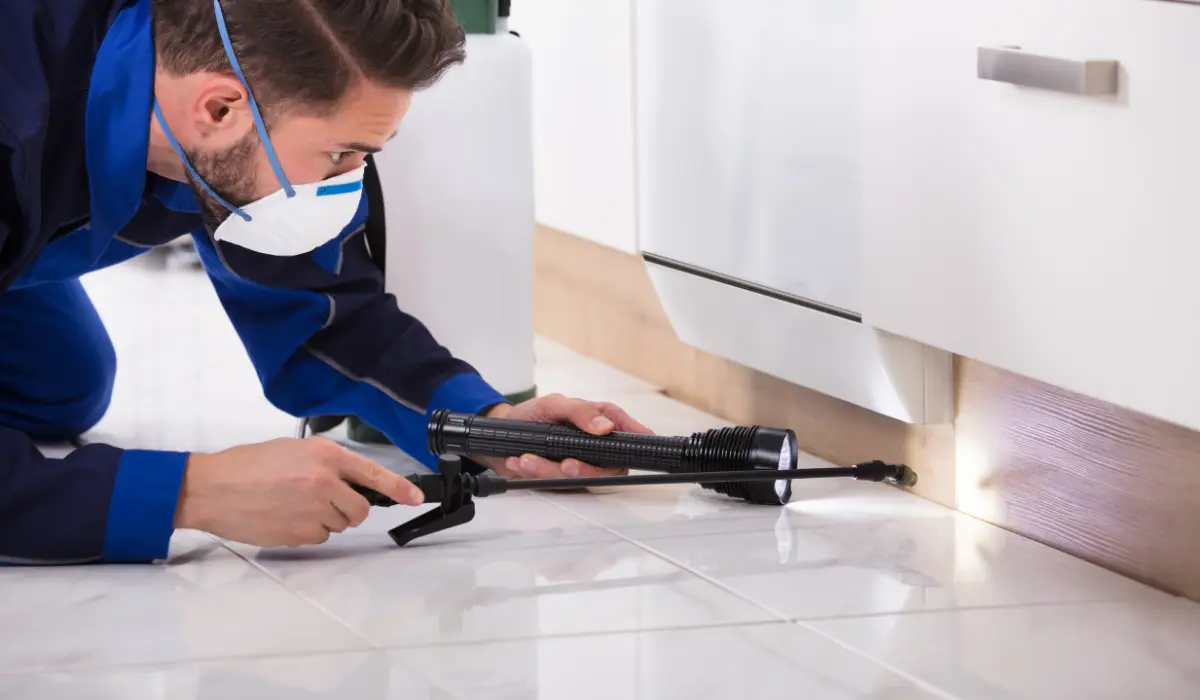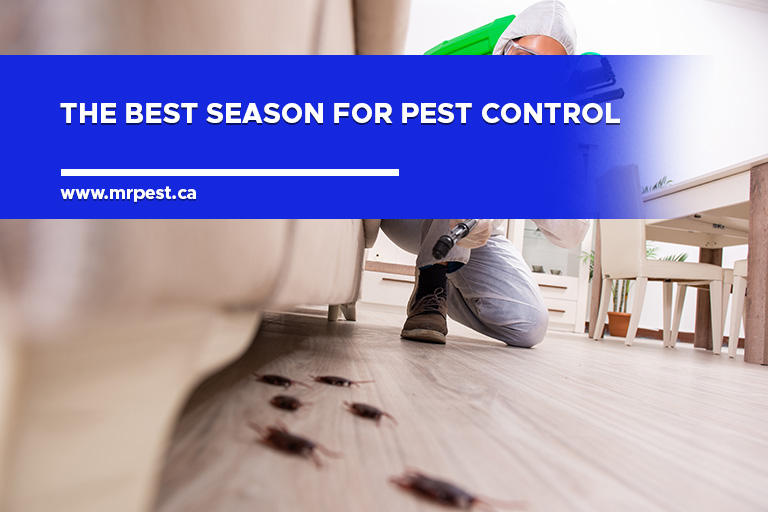Safe and Dependable Bug Control for Lasting Defense
The value of secure and trustworthy insect control can not be overstated, especially in an age where ecological concerns are paramount. Reliable insect management needs a complex approach that stabilizes environmental integrity with the demand for effective bug suppression. By checking out green solutions and integrated parasite monitoring approaches, house owners can attain long-term defense versus invasive varieties while safeguarding valuable ecological communities. The subtleties of these techniques may not be quickly clear, motivating a closer examination of the practices that can lead to lasting insect control outcomes. What steps can be taken to guarantee both safety and effectiveness in bug monitoring?
Understanding Bug Control Techniques
Insect control includes a variety of approaches intended at handling and eliminating undesirable pests and rats that can endanger both health and wellness and building. Comprehending these methods is critical for effective insect administration.
The main groups of insect control methods include mechanical, organic, and chemical strategies. Mechanical techniques include physical obstacles and catches to avoid pest entry and capture undesirable species. Using displays on home windows or employing sticky catches can considerably lower insect populaces without introducing damaging materials - exterminator coquitlam.

Chemical insect control is typically the most acknowledged approach, using pesticides to remove pests. These chemicals can be effective but have to be used with caution to avoid unfavorable impacts on non-target types and the environment.
Advantages of Eco-Friendly Solutions
Just how can environment-friendly options transform insect control techniques? The fostering of environment-friendly pest control techniques supplies numerous benefits, dramatically boosting the efficiency and safety of pest administration.

One more advantage is the favorable influence on local biodiversity. Environmentally friendly remedies are made to target certain pests while protecting useful insects and wild animals, advertising a well balanced community. This approach straightens with the expanding consumer demand for sustainable techniques, improving the online reputation of parasite control providers.
Integrated Insect Administration Strategies
The execution of environment-friendly solutions naturally results in the adoption of Integrated Bug Management (IPM) approaches, which additionally boost bug control efficiency. IPM is an alternative approach that combines multiple techniques to take care of parasite populations while minimizing environmental effect. This approach emphasizes making use of organic, cultural, mechanical, and chemical controls, making certain a sustainable and well balanced method of parasite management.
One basic element of IPM is the detailed assessment of parasite activity and environmental conditions. By checking parasite populations and recognizing their life process, specialists can apply targeted treatments that disrupt the bug's environment or lifecycle, lowering reliance on chemical pesticides. Furthermore, social practices such as plant rotation and habitat manipulation can considerably lessen insect establishment and reproduction.
An additional important element is using organic control representatives, such as beneficial pests or microorganisms, which can naturally subdue pest populations. When chemical applications are necessary, IPM focuses on using low-risk chemicals and uses them uniquely, decreasing direct exposure to non-target organisms and humans.
Including IPM strategies not only boosts insect control performance however additionally advertises a more secure community, aligning with the growing demand for sustainable methods in bug administration.
Safe Practices for House Owners
Comprehending the value of safe my latest blog post techniques in parasite control can empower property owners to effectively handle parasite problems while safeguarding their health and the atmosphere. Carrying out preventive measures official statement and safe techniques is crucial in reducing exposure to dangerous chemicals.
Home owners ought to first examine their setting for problems that draw in parasites, such as standing water, mess, and food waste. On a regular basis cleaning and securing entry points can prevent insects from getting into the home. Utilizing natural deterrents, such as vital oils or diatomaceous earth, can offer efficient choices to chemical pesticides.
When chemical treatments are essential, home owners need to choose for items that are specifically classified as secure for property use. It is necessary to comply with application guidelines thoroughly to stay clear of overexposure. Utilizing targeted treatments in areas where parasites are determined, instead than covering spraying, can substantially reduce chemical use.
Last but not least, keeping open communication with bug control experts is essential. Property owners ought to ask about the safety and security of products used and demand eco-friendly choices whenever possible. By embracing these secure practices, home owners can develop a much healthier living atmosphere while effectively handling bug issues.

Tips for Long-Term Defense
Developing a parasite monitoring strategy that stresses lasting defense can considerably improve the effectiveness of the risk-free methods formerly talked about. To attain official website this, home owners should apply routine evaluations of their building, concentrating on concealed areas such as attics, cellars, and crawl rooms. Early discovery of parasite activity is vital in protecting against invasions from taking hold.
Additionally, maintaining a tidy environment is vital. This includes correct food storage space, immediately cleaning up spills, and consistently throwing away waste. These techniques decrease attractants that draw parasites into the home. Securing entry points, such as splits around doors and windows, can effectively block potential insect access.
Landscaping needs to additionally be thought about; keeping plants cut and preserving a distance in between plant life and the home decreases concealing areas for pests. Utilizing natural deterrents, such as crucial oils or diatomaceous earth, can better inhibit infestations without turning to harsh chemicals.
Last but not least, teaming up with an expert parasite control solution for periodic assessments can supply an extra layer of protection. These professionals can supply customized recommendations and progressed treatments, making sure that your home stays secured versus bugs in the long-term.
Verdict
In conclusion, risk-free and trusted pest control needs a diverse approach that emphasizes green techniques and integrated pest monitoring. By applying all-natural deterrents, conducting routine inspections, and preserving appropriate sanitation, property owners can considerably reduce bug populaces while securing valuable pests and the atmosphere. Cooperation with expert insect control services improves the effectiveness of these strategies, making sure customized options that offer lasting security and satisfaction against future invasions.
Effective parasite management calls for a multifaceted method that balances eco-friendly integrity with the need for reliable pest reductions. The fostering of green insect control approaches supplies countless advantages, dramatically improving the efficiency and safety and security of insect management.The execution of environment-friendly remedies naturally leads to the adoption of Integrated Insect Administration (IPM) methods, which better improve insect control efficacy. exterminator coquitlam. By keeping track of bug populaces and identifying their life cycles, specialists can carry out targeted interventions that interfere with the parasite's habitat or lifecycle, minimizing reliance on chemical pesticides.In final thought, safe and reliable pest control needs a diverse approach that emphasizes environment-friendly methods and integrated bug monitoring